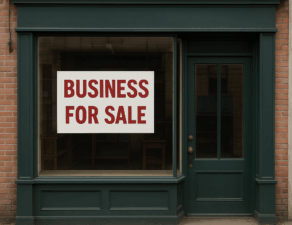 Artificial intelligence is no longer just a futuristic idea—it’s already reshaping how we write, draw, compose, and create. But as AI tools become more powerful, they’re also colliding with long-standing intellectual property (IP) laws. A wave of early AI IP lawsuits is now forcing courts, creators, and companies to grapple with one major question: Who owns what in the age of AI?
Artificial intelligence is no longer just a futuristic idea—it’s already reshaping how we write, draw, compose, and create. But as AI tools become more powerful, they’re also colliding with long-standing intellectual property (IP) laws. A wave of early AI IP lawsuits is now forcing courts, creators, and companies to grapple with one major question: Who owns what in the age of AI?
These cases aren’t just about legal technicalities—they’ll define how creative work is protected going forward.
✍️ Authors vs. AI: The Fight for Literary Rights
In a headline-grabbing lawsuit, the Authors Guild—representing writers like George R.R. Martin, Jonathan Franzen, and John Grisham—has taken legal action against OpenAI. This is a significant example of the growing number of AI IP lawsuits being filed.
Their claim? That OpenAI used their copyrighted books without permission to train AI systems like ChatGPT.
📌 Key Issues:
- AI models allegedly generate summaries or imitations of authors’ styles.
- Authors say their work was scraped from the internet without consent.
- OpenAI argues its use falls under fair use due to the “transformative” nature of training.
The outcome could impact every AI company training models on large text datasets—and may set licensing requirements for AI development going forward.
🎧 AI Deepfakes in Music: Artists’ Voices Under Attack
In 2023, an AI-generated song called “Heart on My Sleeve” went viral, featuring fake vocals that sounded just like Drake and The Weeknd. But neither artist had anything to do with it.
🚨 Universal Music Group quickly demanded takedowns, citing:
- Unauthorized use of vocal likeness.
- Violation of publicity rights and copyright.
📌 Legal Gray Areas:
- Is using someone’s voice style illegal?
- What if no actual recordings were sampled—only mimicked?
📊Results:
The song was later removed from streaming platforms like Spotify and Apple Music after Universal Music Group (UMG), the record label for Drake and The Weeknd, invoked copyright violations
As AI music tools grow more advanced, questions about what counts as infringement or identity theft are becoming more urgent.
📰 News Publishers Push Back on AI Training
The New York Times has also filed suit against OpenAI and Microsoft, claiming AI models were trained on their copyrighted articles—including paywalled content. These actions highlight the increasing legal battles that fall under AI IP lawsuits.
📌 Concerns from publishers:
- AI generates summaries or excerpts of their work.
- Loss of subscription revenue as AI becomes the “middleman.”
- Risk of misrepresentation or misinformation from AI models.
This case will test whether training AI on factual journalism requires explicit licensing—and how publishers can maintain control in a world where content flows freely.
⚖️ Who’s Responsible: The AI Tool or the User?
Let’s say someone uses an AI tool to generate a logo that looks eerily similar to Nike’s swoosh. Is that:
- The user’s fault for typing that prompt?
- Or the company’s fault for training on trademarked logos?
AI companies often claim they’re just providing tools—like Photoshop or a paintbrush. But courts may see things differently, especially when:
- The training data includes copyrighted or trademarked material.
- The software is designed to mimic real-world content by default.
👩⚖️ This raises huge questions around liability and intent, and it’s clear that IP law is playing catch-up.
Stay Tuned: The Legal Landscape is Shifting
These early lawsuits are shaping the future of creative ownership. Writers, artists, musicians, and businesses alike should be paying close attention—because whether you’re using AI or competing with it, the rules of the game are changing fast.
Want help navigating IP in the AI era? Inspired Idea Solutions can help you protect your rights, explore licensing strategies, and stay compliant as the law evolves.



